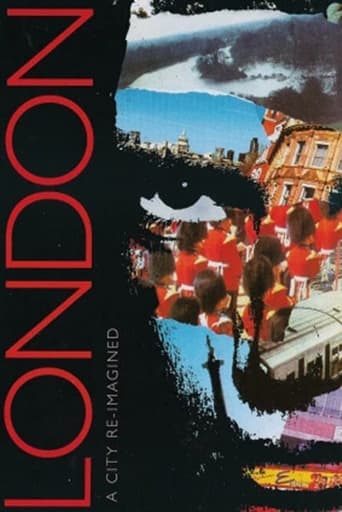Alice Frances
I'm sorry, I know I am in the minority, but I really didn't get this doc-montage-essay, for all its wit and cleverness, and lush photography, and even lusher soundtrack, I felt I was being soundly manipulated by the filmmaker into seeing London as a political and spiritual wasteland. Yes, this film is, I suppose, artistically good, I felt some of the narration was poignant, and resonant of an underlying angst that many people experience in London, which can be isolating. Still, the haughty, droning voice of the narrator, really put me off. The simplistic dichotomy of labour versus conservatives, one good, the other doom laden, an insult to my intelligence, and the lack of voice within the film, apart from the writer's insistent polemic, was by far the most meaningful element. The film approves itself, and obliterates all dissent.
christopher-underwood
Filmed during the election year of 1992, this poignant film presents a very personal, politicised portrait of London as John Major replaces Margaret Thatcher and all seemingly tilts further down into depressing times. If the Conservative government are paralysed with fear and doubt, the IRA certainly are not and add to London's woes on a more frequent basis than I remember. Watching this downbeat, socialist view of London some 15 years after it was shot makes one so aware of just how much has changed for the better. The streets are brighter, people spend more time on them, transport has improved, tourism has roared and confidence and success have replaced the tired old dormitory like city. Ironically, given the tone of this film, it is a little bit of the Labour party, quite a lot of Ken Livingstone, as London Mayor but a whole lot of capitalism at work that has rejuvenated this great city.
[email protected]
Well, I don't have anything to say about this film that's as intelligent as Margarita Nikolaevna's comments, which you should read.A whole interconnected body of work appeared at the end of the twentieth century which seemed to want to deal with 'the problem of London'--with the fact that, while London had been the most modern city on the planet for a terrible length of time, it had never arrived at any conscousness of the nature of its own modernity. I'll name some of these works---Iain Sinclair's _Lights out for the Territory_, Allan Moore's masterpiece, _From Hell_ (which this film understands, I think, much more deeply than the Hughes Brothers'), the pics of Mark Atkins, Peter Ackroyd's _Hawksmoor_, Michael Moorcock's _King of the City_, the job Bill Drummond did on the M25---but Patrick Keiller's film is the most magnificently negative and observant of all of these. Of course it enters into a dialogue with Benjamin's marvelous theorising about how Paris was the Capital of the 19th Century, but if you haven't seen it you should be warned that there's a real humour and humanity here which we're accustomed not to find in serious documentary: eg. the great joke of the mysterious guy in the shopping-centre reading Benjamin.... Oh, yeah, now I wait in the Ikea caff, piling meatball upon meatball, and waiting for the fullfilment and suppression of flat-pack...
vanessa_meikle
During the year 1992, in which this beautiful documentary takes place, I lived in London and became acquainted not only with the kitschy tourist attractions but also with the city which true Londoners know: the little secrets found in back alleys, unknown museums, and interesting buildings. This movie is a sort of homage to that side of the city, and is quite well done. To me, seeing it a year after coming back to the states, it exactly embodied the spirit of that hidden London. Best watched in a decrepit theater on a crackling film reel.

